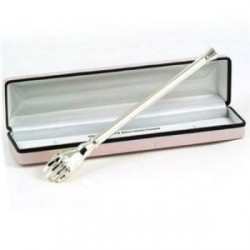Dirty Santa gift exchange is a fun Christmas gift exchange tradition that is anticipated every year across the world. While exact origins are debated, there are a few interesting facts that may unravel the history of this yearly fun get-together!
While Dirty Santa has a few other names in different circles, the premise of the game is similar in all of it’s variations as well as the origin and the purpose of this holiday favorite.
Dirty Santa Roots
There are two historically significant tradition that Dirty Santa stems from. Ever since the Dirty Santa gift exchange has been celebrated during Christmas holidays it’s been associated with Christmas. Today Dirty Santa is a Christmas gift exchange game and it’s unknown who coined the term “Dirty Santa”, but it’s known that the idea of everyone bringing a single gift to the party and then having fun opening random ones while stealing from others was born out of random creativity and also necessity.
You see in a large setting, it is pretty much impossible to buy a gift for everyone. If you have a large group or friends, or have lot’s of coworkers, it would just not be feasible to get everyone a gift and then get a gift from everyone. Dirty Santa solves this problem by allowing everyone to chip in once, have fun, laugh and take home a random gift.
This tradition is not only popular in America, but is also famous in Europe and parts of Asia where it is a custom to give presents during Christmas festivities.
Ancient Origins
Dirty Santa’s roots don’s stop at Christmas, they are also intertwined in an ancient tradition that over the years has formed a name of “White Elephant”. This age old tale sheds more light on the origin of the custom where obscure and inconvenient gifts were given to people:
At some point in history, Kings in ancient Siam, (which today is Thailand) would gift courtiers that had annoyed them very inconvenient gifts. One such gift was a white elephant. The courtier was put in a damning situation. They could not refuse or discard the gift, yet the cost of caring for such an animal would put them in a position that they could not easily get out of. Giving the gift away or discarding a gift from Kind would be an offence they dared not commit, yet the fact remained, they had received a useless gift that was only a burden.
This tradition has changed drastically over the years, but nevertheless, understanding the origins helps put things in perspective.
 SANTA
SANTA











